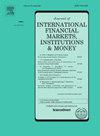金融领域的数字化颠覆:金融科技和大型科技信贷正在重塑企业的融资渠道吗?
IF 6.1
2区 经济学
Q1 BUSINESS, FINANCE
Journal of International Financial Markets Institutions & Money
Pub Date : 2025-07-03
DOI:10.1016/j.intfin.2025.102198
引用次数: 0
摘要
本研究考察了金融科技和大科技信贷(统称为替代数字信贷)在缓解2013年至2019年70个国家企业融资约束方面的作用。研究结果表明,替代数字信贷通过降低投资对现金流的敏感性来缓解融资约束,特别是在发展中国家。这种影响在金融发达的市场更为明显,这些市场拥有强大的制度框架,但银行业竞争力较弱。替代数字信贷的优势对于小型、年轻的制造企业尤其明显。从事国际贸易的公司和外国投资者拥有的公司由于其固有的优势而面临较少的限制。使用其他融资约束措施进行一致性检查重申了这些发现。传导渠道分析进一步强调,金融科技和大型科技公司的进入削弱了银行的市场支配力,鼓励了银行业的更大竞争,最终降低了企业的融资约束。这些见解强调了替代数字信贷在促进普惠金融方面的变革潜力,并提出了有针对性的政策,以促进其在全球的采用。本文章由计算机程序翻译,如有差异,请以英文原文为准。
Digital disruption in financing: Are fintech and bigtech credit reshaping corporate access to capital?
This study examines the role of fintech and bigtech credit, collectively referred to as alternative digital credit, in alleviating corporate financing constraints across 70 countries from 2013 to 2019. The findings indicate that alternative digital credit alleviates financing constraints by reducing investment-to-cash flow sensitivity, particularly in developing countries. This effect is more pronounced in financially developed markets with strong institutional frameworks but less competitive banking sectors. The advantages of alternative digital credit are particularly notable for small, young, and manufacturing firms. Firms engaged in international trade and those owned by foreign investors face fewer constraints due to their inherent advantages. Consistency checks using alternative measures of financing constraints reaffirm these findings. The analysis of transmission channels further highlights that the entry of fintech and bigtech firms weakens banks’ market power, encouraging greater competition in the banking sector and ultimately lowering firms’ financing constraints. These insights highlight the transformative potential of alternative digital credit in promoting financial inclusion and propose targeted policies to enhance its adoption globally.
求助全文
通过发布文献求助,成功后即可免费获取论文全文。
去求助
来源期刊
CiteScore
6.60
自引率
10.00%
发文量
142
期刊介绍:
International trade, financing and investments, and the related cash and credit transactions, have grown at an extremely rapid pace in recent years. The international monetary system has continued to evolve to accommodate the need for foreign-currency denominated transactions and in the process has provided opportunities for its ongoing observation and study. The purpose of the Journal of International Financial Markets, Institutions & Money is to publish rigorous, original articles dealing with the international aspects of financial markets, institutions and money. Theoretical/conceptual and empirical papers providing meaningful insights into the subject areas will be considered. The following topic areas, although not exhaustive, are representative of the coverage in this Journal. • International financial markets • International securities markets • Foreign exchange markets • Eurocurrency markets • International syndications • Term structures of Eurocurrency rates • Determination of exchange rates • Information, speculation and parity • Forward rates and swaps • International payment mechanisms • International commercial banking; • International investment banking • Central bank intervention • International monetary systems • Balance of payments.

 求助内容:
求助内容: 应助结果提醒方式:
应助结果提醒方式:


